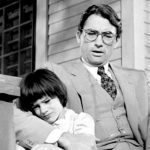 History
History  History
History  Health
Health 10 Everyday Activities That Secretly Alter Consciousness
 History
History Top 10 Historical Disasters Caused by Someone Calling in Sick
 Animals
Animals 10 New Shark Secrets That Recently Dropped
 Movies and TV
Movies and TV 10 Forgotten Realities of Early Live Television Broadcasts
 Technology
Technology 10 Stopgap Technologies That Became Industry Standards
 Weird Stuff
Weird Stuff 10 Wild Facts About Taxidermy That You Probably Didn’t Know
 Travel
Travel 10 Beautiful Travel Destinations (That Will Kill You)
 Miscellaneous
Miscellaneous 10 Modern Marriage Rituals Born from Corporate Branding
 Weird Stuff
Weird Stuff Ten Bizarre Visions of 2026 from Fiction
 History
History 10 “Modern” Problems with Surprising Historical Analogs
 Health
Health 10 Everyday Activities That Secretly Alter Consciousness
 History
History Top 10 Historical Disasters Caused by Someone Calling in Sick
Who's Behind Listverse?

Jamie Frater
Head Editor
Jamie founded Listverse due to an insatiable desire to share fascinating, obscure, and bizarre facts. He has been a guest speaker on numerous national radio and television stations and is a five time published author.
More About Us Animals
Animals 10 New Shark Secrets That Recently Dropped
 Movies and TV
Movies and TV 10 Forgotten Realities of Early Live Television Broadcasts
 Technology
Technology 10 Stopgap Technologies That Became Industry Standards
 Weird Stuff
Weird Stuff 10 Wild Facts About Taxidermy That You Probably Didn’t Know
 Travel
Travel 10 Beautiful Travel Destinations (That Will Kill You)
 Miscellaneous
Miscellaneous 10 Modern Marriage Rituals Born from Corporate Branding
 Weird Stuff
Weird Stuff Ten Bizarre Visions of 2026 from Fiction
10 Famous Writers Who Came Up with Everyday Words
Authors like Shakespeare and Dr. Seuss came up with so many words that people use daily, like “critic” and “nerd.” The amazing creativity of writers and the worlds they imagine sometimes cross over into real life. But just how many words in the English language came from writers? Here’s a list of 10 famous writers who came up with everyday words.
Related: 10 Famous Authors with Failed Books
10 George Orwell and “Cold War”
George Orwell was a man of many talents. Some of his most famous books include 1984 and Animal Farm. Both books were sharp, fierce critiques of totalitarianism and other forms of political extremism. Orwell gave us an indispensable vocabulary to fight and recognize despotism anywhere in society. However, little do people know that Orwell was also responsible for helping to coin and popularize many commonly used words, such as “Cold War.”
The phrase Cold War seems like it’s been around forever, but it was coined and popularized by both Orwell and journalist Walter Lippmann. Orwell first used Cold War on October 19, 1945, in his essay “You and the Atomic Bomb.” This essay deals with the implications of nuclear war and its consequences on global politics. “Cold War” here means that this nuclear political conflict would build on stalled tension and the idea of mutually assured destruction rather than an outright war. Orwell was ahead of his time in more ways than one.[1]
9 Tolkien Invented the Word “Tween”
The world would look mighty different without J.R.R. Tolkien. His most famous work, The Lord of the Rings series, has left a heavy footprint on the fantasy genre, inspiring countless things such as World of Warcraft and Dungeons & Dragons. Tolkien wasn’t just a novelist and a linguist who spent much time crafting the Elvish languages featured in his books. Another little-known fact is that Tolkien also created the word “tween.”
Everyone’s familiar with the word teen, but another similar word, tween, came into vocabulary in the 20th century and describes any child on the cusp of puberty between 9 and 12. Tolkien used it in Lord of the Rings to describe Hobbit’s teen years between childhood and the age of 33. Although this word nowadays is not as commonly used, it’s incredible to think that everyday language could be influenced by the novelists you know and love.[2]
8 Norman Mailer Coined “Factoid”
Norman Mailer was one of the most controversial writers of the 20th century. His knack for crafting engaging nonfiction, such as The Armies of the Night (1968), The Naked and the Dead (1948), and The Executioner’s Song (1979) won him considerable praise and two Pulitzer Prizes. Mailer was part of the New Journalism movement, which aimed to combine both journalism and literary techniques to create something bold and exciting. If you’ve ever used the word “factoid,” you have Mailer to thank.
Mailer first coined the term in his highly popular biography of Marilyn Monroe called Monroe. Mailer described factoids as “facts which have no existence before appearing in a magazine or newspaper, creations which are not so much lies as a product to manipulate emotion in the Silent Majority.” Nowadays, we may think of factoids as little bits of fun trivia or something made up without substantiated evidence. In either case, Mailer was certainly onto something back in the ’70s.[3]
7 “Metaverse” Comes from Cyberpunk Legend Neal Stephenson
Sci-fi juggernaut Neal Stephenson left an indelible mark on the genre that isn’t going to be wiped off any time soon. He authored books such as The Diamond Age and Cryptonomicon, sizeable entries in speculative fiction boasting impressive worldbuilding and themes on technology and totalitarianism.
However, his greatest claim to fame would have to be 1992’s Snow Crash, a novel set in the dystopian future where a virus named Snow Crash has catastrophic consequences for both humans and machines alike. The book was wildly influential in the cyberpunk genre, influencing The Matrix and Ready Player One alike. Stephenson would also be known for coining the word “metaverse.”
Nowadays, we associate the word metaverse with either Facebook’s VR environment or Ready Player One, but the term came from Stephenson’s book. It was used in the same way to describe a virtual reality world where people could interact through their avatars and do things reality would not permit them to. Players could also buy virtual real estate and other forms of private property in this space, much like the OASIS in Ready Player One. Stephenson coined the term and predicted a VR-dominated future for humankind.[4]
6 Medieval Author Geoffrey Chaucer Created the Word “Twitter”
If you’ve ever taken a class on medieval literature, you’ll know Geoffrey Chaucer and either love or hate him. Poet and author Chaucer was the big daddy of this genre and is best known for his earth-shattering collection of stories called The Canterbury Tales. This monumental work, which was published in the 15th century, follows a format of stories told by traveling peasants about strange occurrences in their lives. Chaucer didn’t just give the world incredible literature but also common words we use today, like the word “twitter.”
The word was first used in Chaucer’s 1380 translation of Boethius’s De Consolatione Philosophiae, in which he used the word to describe the light chirping of birds. This word would grow in use over centuries, eventually finding its way into the 21st-century internet, where the most famous use of the word is, of course, Twitter.com—now “X.” It’s profound to think that many words we associate with modernity long come from the ye olde days.[5]
5 Alice in Wonderland Author Lewis Carroll Coined the Word “Chortle”
Lewis Carroll’s indelible mark on fantasy fiction cannot be understated. Carroll was born on January 27, 1832, and was an author, mathematician, and even photographer. He wrote Alice’s Adventures in Wonderland in 1865 as a kind of satire of the weirder ideas in mathematics, like imaginary numbers. The story centers around a young girl, Alice, who falls down a rabbit hole and enters Wonderland, a surreal place where logic is basically non-existent, and has since gone on to inspire so many stories like Coraline and the works of Tim Burton.
A little-known fact about Carroll is that he created a good deal of silly-sounding words like “bandersnatch,” “snark,” and “chortle.” Chortle means to chuckle gleefully and was first used by Carroll in his beloved story “Through the Looking-Glass” (1871), the second story in Alice’s Adventures in Wonderland.[6]
4 O. Henry Invented the Word “Banana Republic”
You may not know O. Henry much by name, but you absolutely know his legacy. William Sydney Porter, known by his pen name, O. Henry, was born in 1862 and was known for his situational comedy and plot twists. His two best-known stories are “The Gift of the Magi” and “The Ransom of Red Chief.” The former is about a young couple who sacrifice their most valuable objects in order to get Christmas gifts for each other. The latter is about two kidnappers who get one-upped by a crafty child, which is what the Home Alone film franchise took inspiration from. And if you’ve ever used the word “banana republic,” you can thank O. Henry for that.
Henry first coined the term while he was living in Honduras. American fruit companies held a considerable monopoly on Central American countries, which inspired Henry to write a story about it. “Cabbages and Kings” was written in 1904. The phrase banana republic was used to describe the story’s fictional country, Anchuria, which mirrored real-world Honduras with its exploitation, sovereignty deficit, and political corruption. A banana republic is usually a totalitarian nation with poor living conditions and a weak economy dependent on natural resources like bananas.[7]
3 Thank William E. Woodward For the Word “Debunk”
American novelist and historian William E. Woodward was born in 1874 and went on to change the landscape of American fiction and nonfiction. His best-known works include his history, A New American History (1936), Meet General Grant, and Bunk. Woodward’s often satirical aims at social problems and problematic institutes in America. He’s also where we get the word ‘debunk’ from.
Bunk is a satirical novel that challenges American culture and societal norms. Throughout the novel, Woodward breaks apart myths and half-truths long held in American society, and he uses the word debunk within the novel to describe this. To debunk means to criticize misinformation and get the truth straight. This indispensable word contributed by Woodward has definitely come in handy in the post-truth era of mass media.[8]
2 Charles Dickens Created the Word “Butterfingers”
By now, Charles Dickens needs no serious introduction. Incredibly famous author of such books as A Christmas Carol, David Copperfield, Great Expectations, and A Tale of Two Cities, Dickens had an impact on literature and the English language like few authors ever will. Dickens was born in 1812 in Portsmouth, Hampshire, England, as one of eight children. Dickens spent most of his early life reading and writing, which led to his naturally voracious appetite for worldly affairs and social politics. Here’s something most people might not know: Dickens also created the word “butterfingers.”
No, we’re not talking about the candy here. The word usually refers to a clumsy person who has a nasty habit of dropping things from their hands. Dickens’s first novel The Pickwick Papers is where the term first appeared when the book was published in 1836. Dickens uses the term to lampoon particularly clumsy cricket players in the satirical story. It has since gone on to represent the beloved crunchy peanut butter chocolate bar.[9]
1 Irish Author, James Joyce
It’s often said that James Joyce was the Irish Shakespeare, and there’s a lot of truth to this. The juggernaut novelist didn’t write as much as his contemporaries, but the stories he did make changed literature forever. Joyce is best known for his works Dubliners, A Portrait of the Artist as a Young Man, Ulysses, and Finnegan’s Wake, all of which tackle various aspects of the human condition, colonialism, and the state of being Irish under British occupation. Joyce was also a noted eccentric, writing, well, risque letters to his wife Nora Barnacle and creating strange words like “quark.”
Some of you will already be familiar with the word quark from particle physics, which defines them as elementary particles that experience all of the known forces in the universe. Joyce first came up with the word in his very strange and very long novel Finnegan’s Wake in 1936. The line goes as follows: “Three quarks for Muster Mark!” Three decades later, physicist Murray Gell-Man used the word quark to describe the newly conceptualized quantum particles, and the rest was history.[10]








